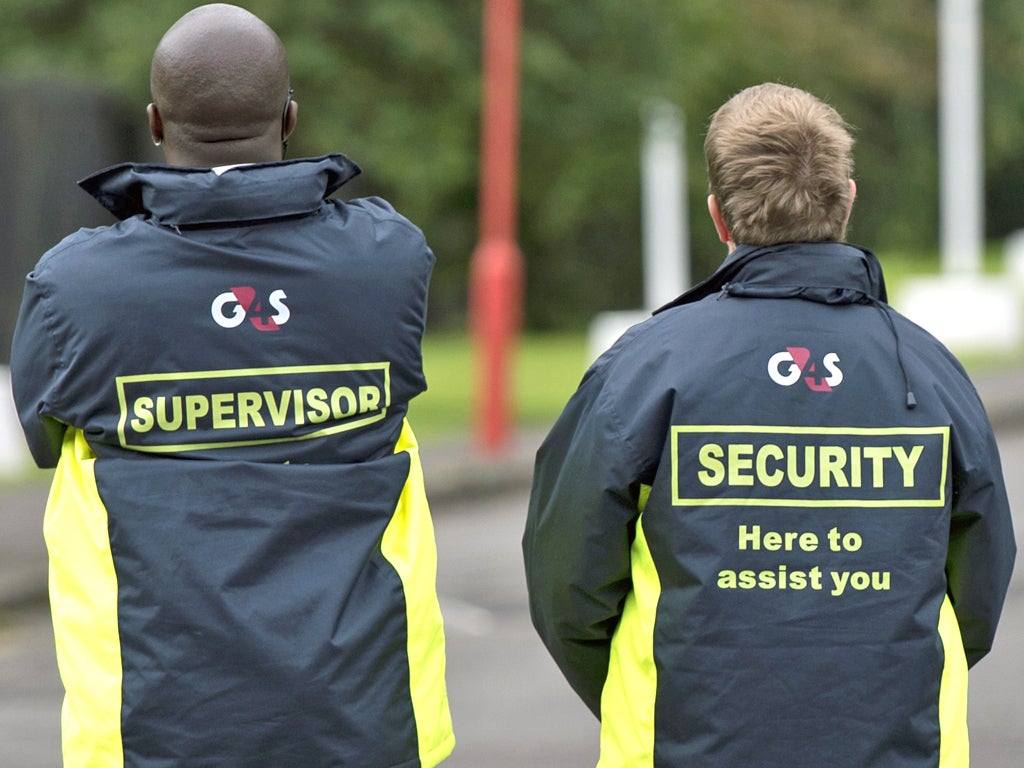South African government launches investigation into allegations of abuse at former G4S prison
A leaked film allegedly depicts electrocution and inmates having medication forced upon them

Your support helps us to tell the story
From reproductive rights to climate change to Big Tech, The Independent is on the ground when the story is developing. Whether it's investigating the financials of Elon Musk's pro-Trump PAC or producing our latest documentary, 'The A Word', which shines a light on the American women fighting for reproductive rights, we know how important it is to parse out the facts from the messaging.
At such a critical moment in US history, we need reporters on the ground. Your donation allows us to keep sending journalists to speak to both sides of the story.
The Independent is trusted by Americans across the entire political spectrum. And unlike many other quality news outlets, we choose not to lock Americans out of our reporting and analysis with paywalls. We believe quality journalism should be available to everyone, paid for by those who can afford it.
Your support makes all the difference.South African authorities have launched an investigation into footage which researchers claim depicts the “torture” of prisoners at one of the country’s reportedly most dangerous prisons.
The film, shot in May, comes a month after the South African government took control of the facility from UK security firm G4S, because it was alleged to have lost control.
The film was shot by the prison’s emergency security team (EST), which is legally required to film all of its actions, the sound of what is claimed to be electrified shocks can heard as a man wails. It also shows a prisoner resisting what is reported to be anti-psychotic medication after apparently complaining about food, despite having no known medical need for such a drug.
The EST is allowed to inject inmates against their will only if they are a danger to themselves or others, and if they are deemed incapable of making an informed decision. The man is shown pleading “No, no, no” and “I am not a donkey” as five guards hold him down.
The footage comes from a year-long research project conducted at the Mangaung Correctional Centre near Bloemfontein by the Wits Justice Project (WJP) at University of Witwatersrand in Johannesburg. The team also heard accounts of electric shocks and beatings from almost 30 prisoners by staff at the facility which holds 3,000 high-risk inmates.
"Some said they would pass out when the shocks became too intense," said Ruth Hopkins, a journalist with the WJP. She also said they had been told that inmates suffered broken limbs and other serious injuries.
An ex-inmate told the BBC that electric shocks were used as “torture”, and a former G4S security guard alleged that prisoners were doused with water to heighten the danger of electric shocks administered.
Lawyers representing some of the prisoners have condemned the impunity of prison staff.
G4S denies any allegations of torture or assault, and instead blames a string of violence that led to South African authorities taking over control of the facility on the dismissal of 330 warders following an illegal strike in August and September.
The Department of Correctional Services took control over the centre in early October because of a “worrying deterioration of safety and security” according to Nontsikelelo Jolingana, the department's acting national commissioner. She also said that G4S “had lost effective control of the facility”, and that since the sacking of prison staff, the facility has used unqualified staff, which is illegal.
Andy Baker, president of G4S Africa, told reporters earlier this month regarding the government takeover that: "The Mangaung correctional centre has an impeccable track record in maintaining the safety of both inmates and employees."
In response to the leaked footage he told the BBC that administering and prescribing injections was not the domain of G4S staff, but of a separate medical staff, and to his knowledge there had "never been" electric shocking or beating at the centre.
Subscribe to Independent Premium to bookmark this article
Want to bookmark your favourite articles and stories to read or reference later? Start your Independent Premium subscription today.
Join our commenting forum
Join thought-provoking conversations, follow other Independent readers and see their replies
Comments